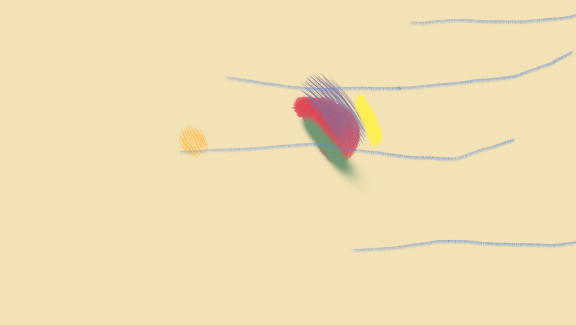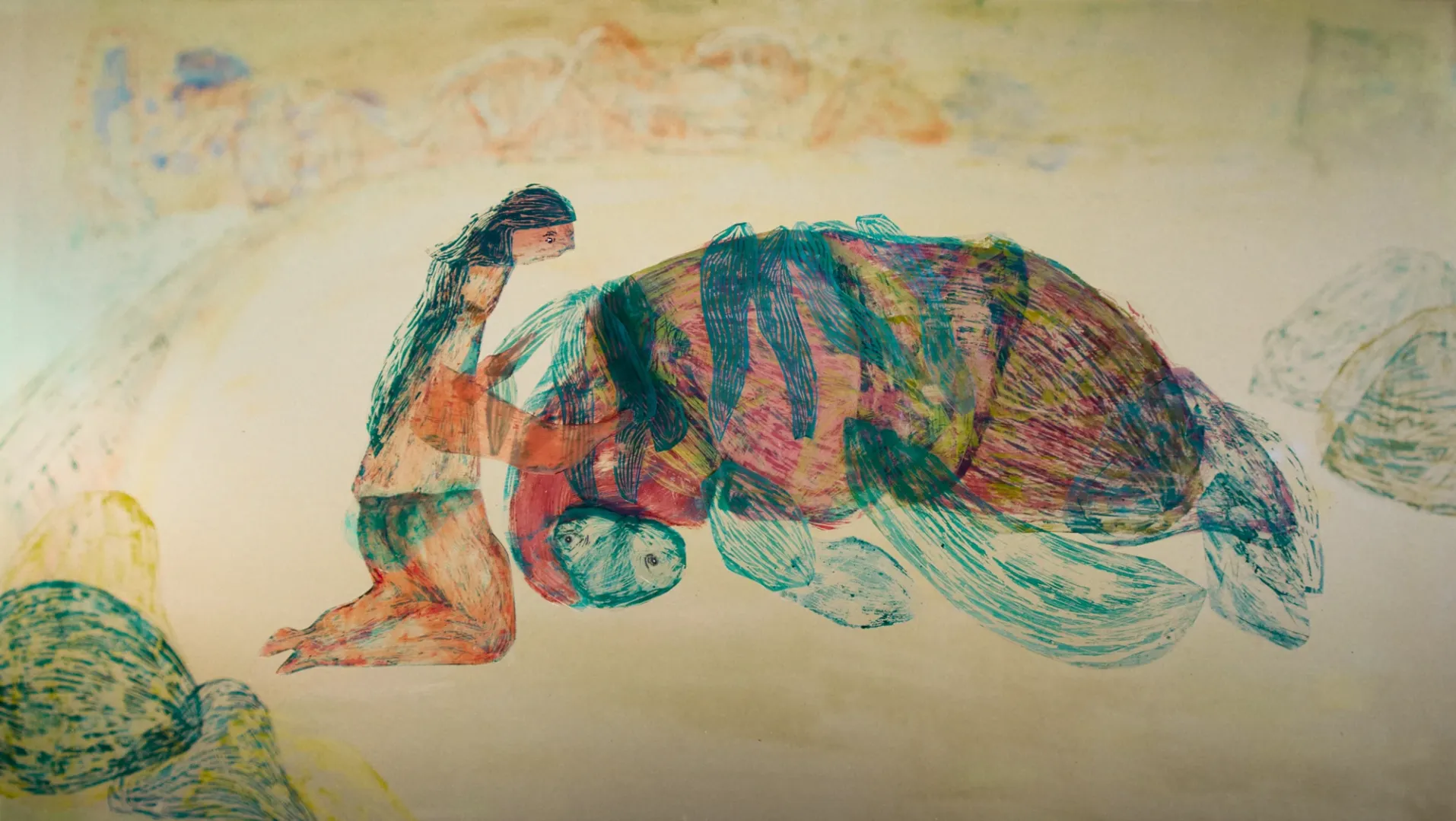You Could Sunbathe in this Storm
Synopsis
Do we shape as much as we are shaped?
Details
- Year
- 2014
- Type of project
- Shorts
- Running time
- 6 mins
- Format
- Digital
- Director
-
Alice Dunseath
- Producer
- Alice Dunseath
- Editor
- Alice Dunseath
- Screenwriter
- Alice Dunseath
- Director of Photography
- Alice Dunseath
- Production Designer
- Alice Dunseath
- Sound
- Mike Wyeld
- Composer
- Jake Chudnow, Lucy Railton
- Principal cast
- Tony Fish
- Animator
- Luke George, Tom O'Meara
Genre
Categories
Production Status
Production Company
Royal College of Art, London
Sales Company
Alice Dunseath
E: alicedunseath@gmail.comPage updates
This page was last updated on 12th May 2025. Please let us know if we need to make any amendments or request edit access by clicking below.
See also
You may also be interested in other relevant projects in the database.
 Hunting for Hockney
Hunting for Hockney
Director: Alice Dunseath
Year: 2013
To escape from the realities of bereavement, two friends travel across Yorkshire to look for David Hockney. Grief toys with their senses and heightens their need for adventure. The style references the work of Hockney.
 You Could Sunbathe In This Storm
You Could Sunbathe In This Storm
Director: Alice Dunseath
Year: 2014
Space, forms, colours and sounds symbolise a recognisable world. Do we shape as much as we are shaped? Do new beginnings put an end to familiar patterns?
 Criatura
Criatura
Director: Nitya Ramlogan
Year: 2025
13-year-old Lola discovers a mysterious sea creature in her new seaside hometown. Their day spent together at the fun fair reveals questions of belonging. Layered with documentary audio recordings of conversations with 13-year old Lola and her London school peers about migrating to London from Mexico. Official Selection Festival Internacional de Cine de Morelia 2025 Official Selection Aesthetica Short Film Festival 2025 Official Selection Stuttgart International Festival of Animated Film 2026
